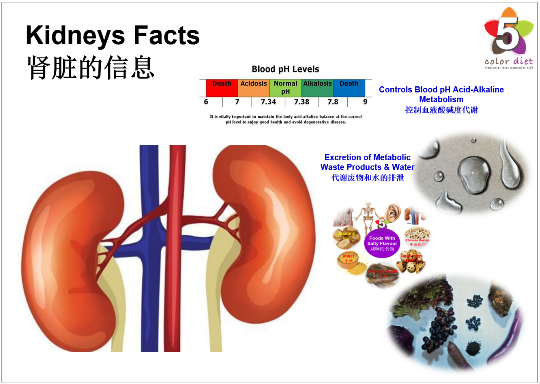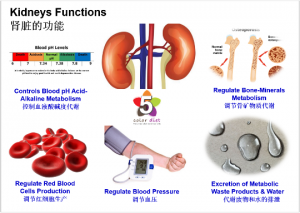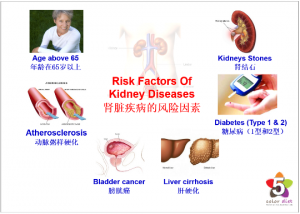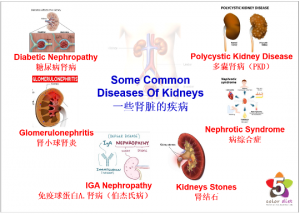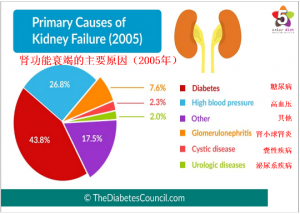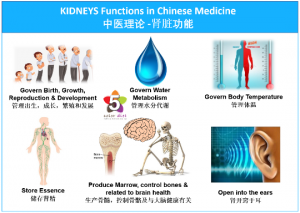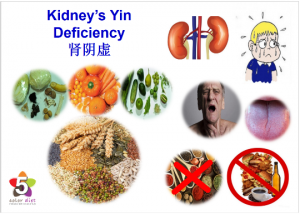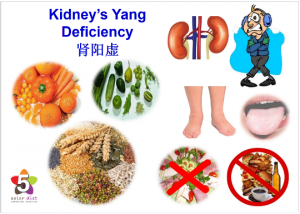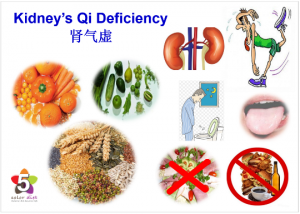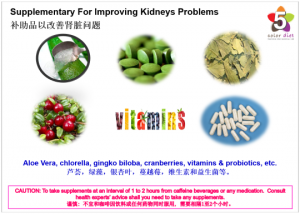
Kidneys Overview
Kidneys clean and balance our entire body’s blood supply. Approximately 200 quarts (189.27 litres) of blood are processed through our Kidneys every 24 hours. The Kidney’s primary function is cleaning the blood by removing waste products and excess fluid from our body through urine production. Other functions by our Kidneys include control the body’s mineral and acidity levels; keep bones strong and healthy by producing calcitriol, an active form of vitamin D; regulate blood pressure by producing the enzyme rennin & stimulate the production of red blood cells by producing the hormone erythropoietin.
Risk Factors Of Kidney Diseases
● Age: The risk of Chronic Kidney Disease (CKD) increases for people older than 65 years. The condition also runs in families. It is more likely to occur in African-Americans, Native Americans, and Asian-Americans.
● Atherosclerosis.
● Autoimmune disease.
● Bladder cancer.
● Cigarette smoking.
● Cirrhosis & liver failure.
● Diabetes (Types 1 & 2).
● High cholesterol.
● Kidney: Kidney infection, kidney stones, kidney cancer or narrowing of the artery that supplies your kidney.
● Obesity.
● Obstructive kidney disease, including bladder obstruction caused by benign prostatic hyperplasia.
● Scleroderma.
● Systemic lupus erythematosus.
● Vasculitis.
● Vesicoureteral reflux, which occurs when urine flows back into your kidney.
Different Types of Kidney Diseases
● Alport Syndrome.
● Diabetic Nephropathy.
● Fabry Disease.
● Focal Segmental Glomerulosclerosis.
● Glomerulonephritis.
● IgA Nephropathy (Berger’s Disease).
● Kidney Stones.
● Minimal Change Disease.
● Nephrotic Syndrome.
● Polycystic Kidney Disease (PKD), etc.
Statistics On Primary Causes Of Kidney Failure in 2005
-
Chinese Medicine’s Theory On Kidney’s Facts
In Traditional Chinese Medicine, the Kidneys store our essence or the basic materials that make up our constitution and the reproductive fluids that create life. All organs are dependent on the Kidneys for proper growth, reproduction, water flow and control and the balance of “fire and water”. The Liver sends water soluble waste to the Kidneys, where they are further filtered and passed through the Bladder for elimination. The Kidneys filter nutrients and waste from the blood. The kidneys are our major filter and the bladder is its friend.
Traditional Chinese Medicine views the Kidneys as the center of the body’s yin and yang, the “congenital foundation,” or the origin of life. In other words, the Kidneys store the primordial yin and primordial yang (also called Kidney Yin and Yang), which is the place where nutrients are stored and physiological functions take place.
In Chinese Medicine’s theory, the functions of the Kidneys are:
● Store Essence and govern birth, growth, reproduction & development.
● Produce Marrow, fill up the brain, and control bones.
● Govern water metabolism and regulate body temperature.
● Control the reception of Qi.
● Open up into the ears.
● Manifest in the head hair.
● Control the two lower gates (orifices).
● House Will power (Zhi).
● The gate of vitality (Ming Men).Kidney’s imbalances in Chinese Medicine are:
(1) Kidney Yin Deficiency
(2) Kidney Yang Deficiency
(3) Kidney Qi Deficiency
Taking the right food sources & herbs is one way to help eliminate toxic substances from our kidneys naturally & improve kidneys’ health. The detoxification systems of our body need to be in priority order because each organ need to cleanse its toxins or the toxins will spread to other organs. Advisable to follow the detoxification system’s in priority order…
-
General Dietary Recommendations For Kidney’s Health
Choosing the right diet is one way to better kidney’s health.
Pattern Description Causes Of Kidney’s Toxicity Azotemia, certain acute & chronic diseases, cystic disease, certain medications, decreased kidney function, diabetes, enzymuria, genetic health problems, glomerular diseases, high blood pressure, kidney trauma, nephritis, polycystic kidney disease, proteinuria, severe dehydration, toxic exposure to environmental pollutants and urologic diseases, etc. Symptoms Of Kidney’s Toxicity Bone pain & fractures, change in urine color, chest pain, decreased sexual interest & erectile dysfunction, fatigue, headaches, itchy & easy bruising skin, irregular urine odour, loss of appetite, muscle cramps, nausea, numbness in hands & legs, pain in abdomen area, puffiness around the eyes, short of breath, swelling in the legs, thirty, urine frequency & weight loss, etc. Recommended Food Sources For Improving Kidney’s Health ● In Traditional Chinese Medicine’s theory, consuming Black, purple & blue fruits & vegetables will help in Kidney’s health eg: Bilberries, black beans, blackberries, black currants, blueberries, black goji berries, dried plums/ prunes, eggplants, plums, purple asparagus, purple cabbage, purple carrots, purple figs, purple-skinned potatoes, purple grapes, purple peppers, purple sweet potatoes, raisins & yam, etc. ● In addition, take food sources with salty flavour as well. (Eg: abalone, amaranth, cuttlefish, duck meat, jellyfish, kelp, millet, oysters, sea cucumber, sea clams, sea mussels, shrimps & seaweed, etc).
● Food diet should comprise of Proteins only 10-20%, Complex carbohydrates 20-30% like grains and starchy root vegetables & Cooked vegetables 50% & more.
Foods To Avoid Or Least Intake For Improving Kidney’s Health ● Alcoholic beverages, caffeine beverages, cold & raw foods (Eg: iced drinks, raw meat, salads or white/ tan & brown fruits & vegetables), fried or greasy foods, processed foods, salt, sour or spicy foods & sugar, etc. ● Moderate intake of black/ purple & blue color fruits & vegetables for those whose body system are heaty & with high blood pressure because most of these foods has heaty energy which may aggravate their conditions.
● Moderate intake of foods with salty flavour for those who have poor blood circulation because these foods may obstruct flow of blood.
● Avoid smoking & stress.
-
Dietary Recommendations For Kidney’s Yin Deficiency
Kidney Yin, also called primordial yin, true yin or true water, is the foundation of the Yin fluid of the whole body; it moistens and nourishes the organs and tissues. Imbalance of kidney yin and kidney yang deficiencies lead to many diseases and affects all organs of the body.
Pattern Description Causes Of Kidney Yin Deficiency ● Chronic ear problems, chronic nephritis, chronic urogenital problems, mental overwork, excess energy, excessive sexual activity, high blood pressure, lumbago, medications’ side effects & memory loss, etc. ● Chronic diseases also can deplete Kidney yin, along with the yin of the Liver, Heart or Lungs.
Symptoms Of Kidney Yin Deficiency Constipation, dizziness, dry mouth & throat, hearing problems, hot sensation in the chest, palms & soles, ringing in the ears, seminal emission, soreness & weakness of the lumbar regions & knees and spontaneous sweating, etc. The tongue is red and covered with a light coating of fur. Recommended Food Sources For Improving Kidney Yin Deficiency ● Beans: All nuts & seeds, beancurd, bean sprouts, adzuki beans, mung beans, miso paste & tempeh, etc. ● Fruits: Apples, banana, coconut, grapes, melons, mulberries, peaches, pears, plums, pomegranate, raisins, especially most white/ tan & brown color fruits, etc.
● Grains: Barley, Chinese barley, millet, oats, wheat & white rice, etc.
● Herbs & Spices: American ginseng, Cordyceps, Dang Shen, mulberry leaves & wheatgrass, etc.
● Meat & Seafood: All seafood & white meat.
● Vegetables: Beets, black fungus, cabbage, carrots, celery, kelp, lettuce, lily bulbs, lotus root, mushrooms, pumpkin, seaweed, spinach, string beans, sweet potatoes, tomatoes, wheatgrass, white fungus, zucchini, especially most white/ tan & brown color vegetables, etc.
● Others: Blackstrap molasses, honey, marmite, vegemite, dairy products in moderation (Eg: cheese, eggs & milk Except yogurt), healthy oils (Eg: almond oil, flaxseed oil, olive oil) and Teas (Eg: Chinese barley, mulberry leaves & peppermint leaves), etc. Advisable to drink water, fruit juices & soups regularly.
● Food diet should comprise of Proteins only 10-20%, more on Complex carbohydrates like grains and starchy root vegetables & Cooked vegetables 40%.
Foods To Avoid Or Least Intake For Improving Kidney Yin Deficiency ● Alcohol, caffeine beverages, carbonated beverages, citrus fruits, pickles, pungent herbs (Eg: Basil, capsicum, cinnamon, cloves, garlic, ginger, horseradish, leeks, onions, shallots, turmeric), red meat, shrimps, spicy foods & vinegar, etc. ● Avoid smoking & stress.
-
Dietary Recommendations For Kidney’s Yang Deficiency
Kidney Yang, also called primordial yang, true yang or true fire, is the foundation of the Yang Qi of the whole body; it warms and promotes the functions of the organs and tissues. Imbalance of kidney yin and kidney yang deficiencies lead to many diseases and affects all organs of the body.
Pattern Description Causes Of Kidney Yang Deficiency ● Adrenal hypo-function, advancing aging, asthma, cardiac insufficiency, chronic ear problems, chronic nephritis, decreased sexual desire, depression, edema, emphysema, endocrine or hormonal dysfunction, excessive sexual activity, hypothyroidism, impotence, infertility, low energy, lumbago, medications’ side effects, neurasthenia, physical overwork & premature ejaculation, etc. Symptoms Of Kidney Yang Deficiency Aversion to cold, cold limbs, declining libido or impotence in severe cases, difficulty in urination, edema, enuresis, spiritual fatigue, soreness or cold sensation in the knees & lumbar regions, etc. The tongue is bulky, moist, and covered with white fur. Recommended Food Sources For Improving Kidney Yang Deficiency ● Bean: Black beans, black sesame seeds, chestnuts, chick peas, pistachios & walnuts, etc. ● Fruits: All berries, dates, stewed fruits, especially most dark green/ black/ purple/ blue/ orange & yellow color fruits, etc.
● Grains: Cooked grains, hulled wheat, oats & roasted barley, etc.
● Herbs & Spices: Black pepper, coriander, cinnamon, cloves, fennel, fenugreek, garlic, ginger, nutmeg, onions, parsley, rosemary, spring onions, star anise & turmeric, etc.
● Meat & Seafood: All seafood. Moderation for white & red meat etc.
● Vegetables: Carrots, chives, green peas, leeks, parsnips, pumpkin, sweet potatoes, turnips, yam, especially most dark green/ black/ purple/ blue/ orange & yellow color vegetables, etc.
● Others: Soups & Teas (Eg: Cinnamon, fennel, fenugreek, ginger, nutmeg, rosemary & turmeric, etc). Moderation for blackstrap molasses, maltose & rice syrup, etc.
● Food diet should comprise of Proteins only 10-20%, more on Complex carbohydrates like grains and starchy root vegetables & Cooked vegetables 30-40%.
Foods To Avoid Or Least Intake For Improving Kidney Yang Deficiency ● Alcohol, caffeine beverages, carbonated beverages, citrus fruits, cold & raw foods (Eg: iced drinks, raw meat, salads or white/ tan & brown fruits & vegetables), dairy products (Eg: butter, cheese, eggs & milk except yogurt), fried or greasy foods, glutinous rice, peanuts, processed foods, salt, seaweed, spinach, sprouts, soybean products, tomatoes, vinegar, wheat products & refined sugars (Eg: biscuits, cakes & pastries), etc. ● Avoid smoking & stress.
-
Dietary Recommendations For Kidney’s Qi Deficiency
Kidney Yang Deficiency and Kidney Qi Deficiency have similar presentations, however they can still be differentiated clinically. Manifestation of Kidney Yang Deficiency follows the rules of Yang vacuity internal cold, therefore it usually presents cold symptoms, eg: Cold & pain in the lumbar area and cold limbs. Kidney Qi Deficiency is a common clinical diagnosis and does not usually present with cold symptoms. When the kidney’s astringent or storage functions are poor with a Kidney Qi Deficiency, associated symptoms appear, eg: Frequent urination, copious amounts of clear urine, incontinence, enuresis, seminal emission, abortion or miscarriage.
Kidney Yang Deficiency and Kidney Qi Deficiency represent different stages of a process. Improper management of Kidney Qi Deficiency leads to Kidney Yang Deficiency. While, proper management of Kidney Yang Deficiency leads to less severe symptoms of a Kidney Qi Deficiency and then gradual recovery to the normal state.
Pattern Description Causes Of Kidney’s Qi Deficiency ● Emotional disorders eg: anxiety, depression, grieving or sadness, stress & worry, etc. ● Excessive of cold or raw foods like iced drinks, raw meat, salads or most white/ tan and brown fruits & vegetables, etc.
● Hormonal imbalances, malnutrition, old age, sleep deprivation & weak immune system, etc.
Symptoms Of Kidney’s Qi Deficiency Chronic low back pain, copious amounts of clear urine, incontinence, early grey hair, enuresis, frequent urination especially at night, miscarriage, seminal emission, hip joint pain, incontinence, pale face, poor memory, short of breath, spontaneous sweating, tension, weak voice, weakness in arms & legs, etc. Tongue: normal or pale color. Recommended Food Sources For Improving Body Imbalance Related To Kidney’s Qi Deficiency ● Bean, Nuts & Seeds: Black beans, chick peas, chestnuts, fava beans, kidney beans, lotus seeds & walnuts, etc. ● Fruits: Dates, cherries, figs, stewed fruits, sugarcane and especially most green/ orange & yellow color fruits, etc.
● Grains: Cooked whole grains (Eg: amaranth, buckwheat, cereals, oats, brown rice, millet & quinoa), roasted barley, etc.
● Herbs & Spices: Black pepper, cinnamon, garlic, ginger, fennel, nutmeg, onions & turmeric, etc.
● Meat & Seafood: Fish (Eg: Anchovy, catfish, eel, mackerel, perch & tuna, etc), beef, black chicken, chicken, goose, mutton, quail & rabbit, etc.
● Vegetables: Carrots, corn, green peas, leeks, mushrooms, parsnips, pumpkin, sweet potatoes, turnips, yam, zucchini and especially most green/ orange & yellow color vegetables, etc.
● Others: Blackstrap molasses, honey, maltose, rice syrup & Teas (Eg: cinnamon, ginger, fennel & nutmeg, etc).
● Food diet should comprise of Proteins only 10-20%, Complex carbohydrates 40-60% like grains and starchy root vegetables & Cooked vegetables 30-40%.
Foods To Avoid Or Least Intake For Improving Body Imbalance Related To Kidney’s Qi Deficiency ● Alcohol, caffeine beverages, carbonated beverages, chocolates, citrus fruits, cold or raw foods (Eg: iced drinks, raw meat, salads or white/ tan & brown fruits & vegetables), dairy products (Eg: butter, cheese, eggs, milk except yogurt), fried or greasy foods, processed foods, seaweed, spinach, soybean products except miso paste & tempeh, tomatoes, wheat products and refined sugars (Eg: biscuits, cakes & pastries), etc. ● Avoid smoking & stress.
-
Supplementary for Improving Kidneys’ Problems
● Herbs: Alfalfa. Aloe Vera, Green Chlorella, Gingko Biloba, Horsetail, Juniper, Nettle, Oatstraw, Spirulina and Uva-Ursi, etc.
● Amino Acids, Vitamins & Minerals: L-Arginine, L-Carnitine, L-Methionine, Vitamin A, Vitamin B6, Vitamin C with Bioflavonoids, Vitamin E, Calcium Citrate Malate, Magnesium Citrate, Multi-Vitamins & Minerals, Zinc, Acidophilus, etc.Note:
(1) To take supplements at an interval of 1 to 2 hours from caffeine beverages or medication.
(2) Consult health experts’ advice shall you need to take any supplements, especially if you are pregnant, breastfeeding or having any medical conditions.
- Alternative Therapies For Improving Kidneys’ Problems












